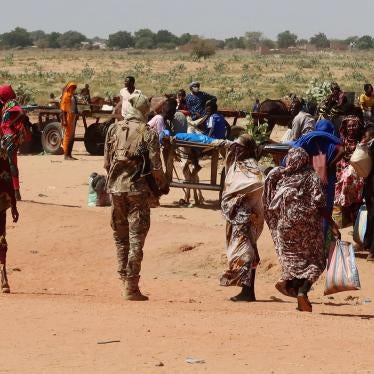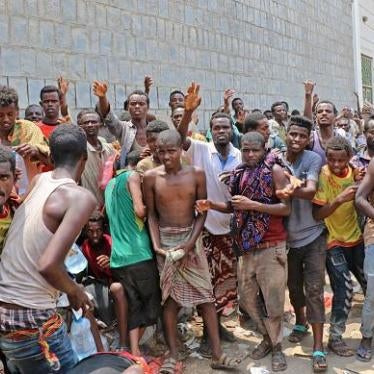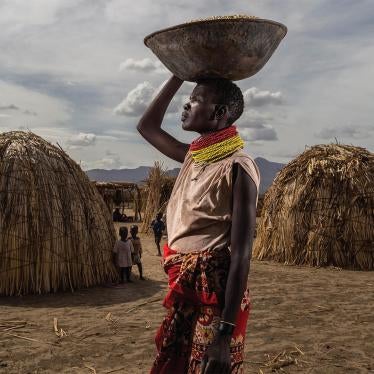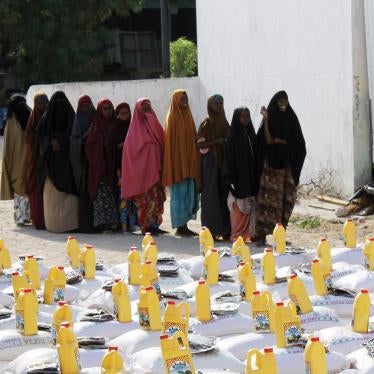G8 and African leaders meeting today to discuss ways of fighting poverty in Africa should urge Zimbabwe’s government to end its campaign of forced evictions, which has destroyed the homes and livelihoods of thousands of Zimbabweans, Human Rights Watch said today.
During a recent fact-finding mission to Zimbabwe, Human Rights Watch interviewed scores of victims and witnesses of the government’s “Operation Murambatsvina” (“Clear up the Filth”). Since May 19, police have burnt, bulldozed and destroyed the houses and informal businesses of thousands of Zimbabweans, many of whom have been sleeping on the streets for the past six weeks.
“G8 and African leaders should recognize how massive human rights abuses also fuel poverty in Africa,” said Tiseke Kasambala, researcher in Human Rights Watch’s Africa Division. “They should call on the Zimbabwean government to respect fundamental human rights and stop the evictions.”
The United Nations estimates that up to 360,000 people (more than two percent of Zimbabwe’s population) throughout the country have been evicted and that most are now homeless. Tens of thousands have been forced to move to Zimbabwe’s rural areas, and the authorities have relocated some 4,000 people to a government-run transit camp. Hundreds of others have moved in with families or friends in urban areas, often leading to severe overcrowding.
In some cases, police used excessive force to carry out the evictions. Armed with guns and axes, police repeatedly ordered people to go back to rural areas. Victims told Human Rights Watch that the police used threats and intimidation to force them to destroy their own houses. In some cases, those who refused were beaten with baton sticks.
Police also destroyed houses and buildings without considering the safety of residents or their possessions. Three people reportedly died during mass evictions on Porta Farm on June 29 and 30 including one child who was crushed to death by falling rubble during attempted forced removals by police.
“The forced evictions have caused widespread devastation,” said Kasambala. “Thousands have lost their homes and livelihoods. It will take years for them to rebuild their lives.”
The Zimbabwean government says that the evictions are necessary to improve living conditions and reduce the crime rate in urban areas. But the government has also failed to address the acute housing crisis in Zimbabwe especially in the urban areas. The authorities turned a blind eye to the unplanned backyard extensions in many high-density areas, which mushroomed as a result of the housing crisis. The Zimbabwean government also forcibly evicted people from legal housing and business structures. The evictions and demolitions were carried out inhumanely, with little or no warning and without due process in violation of international and Zimbabwean law.
“I gave birth yesterday. We have been sleeping in the open for three weeks,” said a young woman in Sakubva, Mutare, who was evicted from her home in early June. “For now, I am sleeping with the newborn in this shack while my husband and two other children sleep outside. We don’t know what to do.”
Those evicted include thousands of Zimbabweans who left drought-hit rural areas and came to the urban areas to improve their livelihoods or who were displaced during the government’s land resettlement program such as ex-farm workers. People fleeing violence in the rural areas during elections in 2000 and 2002 and others who were implicitly encouraged by the government to take over farms on the outskirts of Harare were also among those evicted. In addition, the government forcibly moved and resettled people in areas around Harare.
“The large numbers of people uprooted by the evictions will put pressure on scarce resources in the rural areas which have already been hit hard by food shortages,” said Kasambala.








